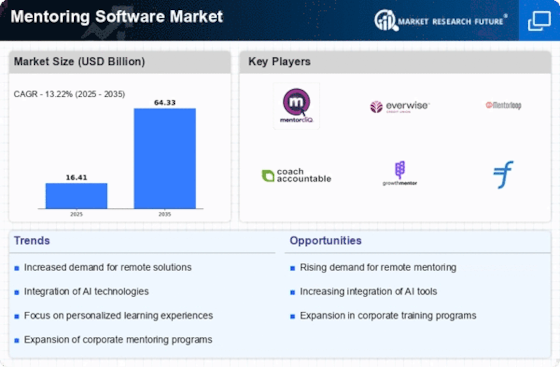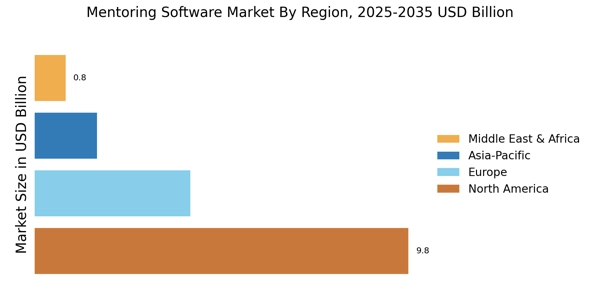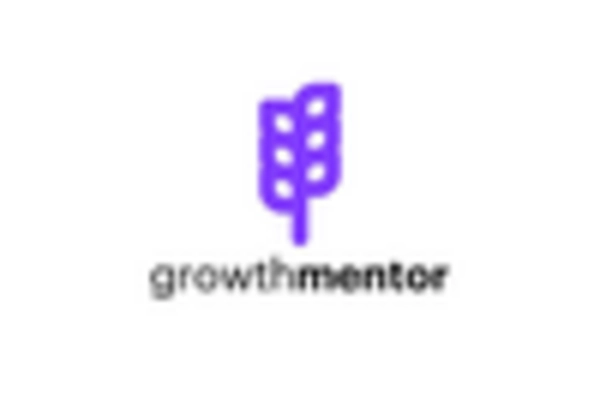Rising Demand for Employee Development
The Mentoring Software Market is experiencing a notable increase in demand for employee development solutions. Organizations are increasingly recognizing the value of mentoring programs in enhancing employee skills and fostering career growth. According to recent data, companies that implement structured mentoring programs report a 20% increase in employee retention rates. This trend indicates that businesses are prioritizing talent development, which in turn drives the adoption of mentoring software. As organizations strive to create a culture of continuous learning, the Mentoring Software Market is likely to see sustained growth, with more companies investing in technology that facilitates effective mentoring relationships.
Shift Towards Remote Work Environments
The shift towards remote work environments is reshaping the Mentoring Software Market. As organizations adapt to flexible work arrangements, the need for effective remote mentoring solutions has become increasingly apparent. Mentoring software that supports virtual interactions is essential for maintaining engagement and collaboration among remote teams. Data suggests that companies utilizing remote mentoring platforms experience a 30% increase in employee satisfaction. This trend indicates that organizations are prioritizing the development of remote mentoring strategies, which in turn drives the demand for specialized software solutions within the Mentoring Software Market.
Growing Emphasis on Employee Well-Being
The Mentoring Software Market is also influenced by the growing emphasis on employee well-being. Organizations are recognizing the importance of mental health and work-life balance, leading to the integration of mentoring programs that support overall employee wellness. Mentoring relationships can provide emotional support and guidance, contributing to a healthier workplace environment. Studies show that companies with strong mentoring programs report lower levels of employee stress and burnout. As businesses increasingly prioritize employee well-being, the Mentoring Software Market is likely to expand, with software solutions designed to enhance the mentoring experience and promote holistic employee development.
Increased Focus on Diversity and Inclusion
The Mentoring Software Market is witnessing a heightened focus on diversity and inclusion initiatives within organizations. Companies are increasingly implementing mentoring programs aimed at supporting underrepresented groups, thereby fostering a more inclusive workplace culture. Research indicates that organizations with diverse teams are 35% more likely to outperform their competitors. This emphasis on diversity is driving the demand for mentoring software that can facilitate targeted mentoring relationships. As businesses strive to create equitable opportunities for all employees, the Mentoring Software Market is likely to grow, with software solutions tailored to support diverse mentoring initiatives.
Technological Advancements in Software Solutions
Technological advancements are significantly influencing the Mentoring Software Market. The integration of innovative features such as artificial intelligence and machine learning is enhancing the functionality of mentoring platforms. These technologies enable personalized mentoring experiences by matching mentors and mentees based on skills, interests, and goals. Furthermore, the rise of mobile applications allows for greater accessibility, making mentoring more convenient for users. As organizations seek to leverage technology to improve mentoring outcomes, the Mentoring Software Market is poised for expansion, with an increasing number of software solutions entering the market to meet diverse organizational needs.


















